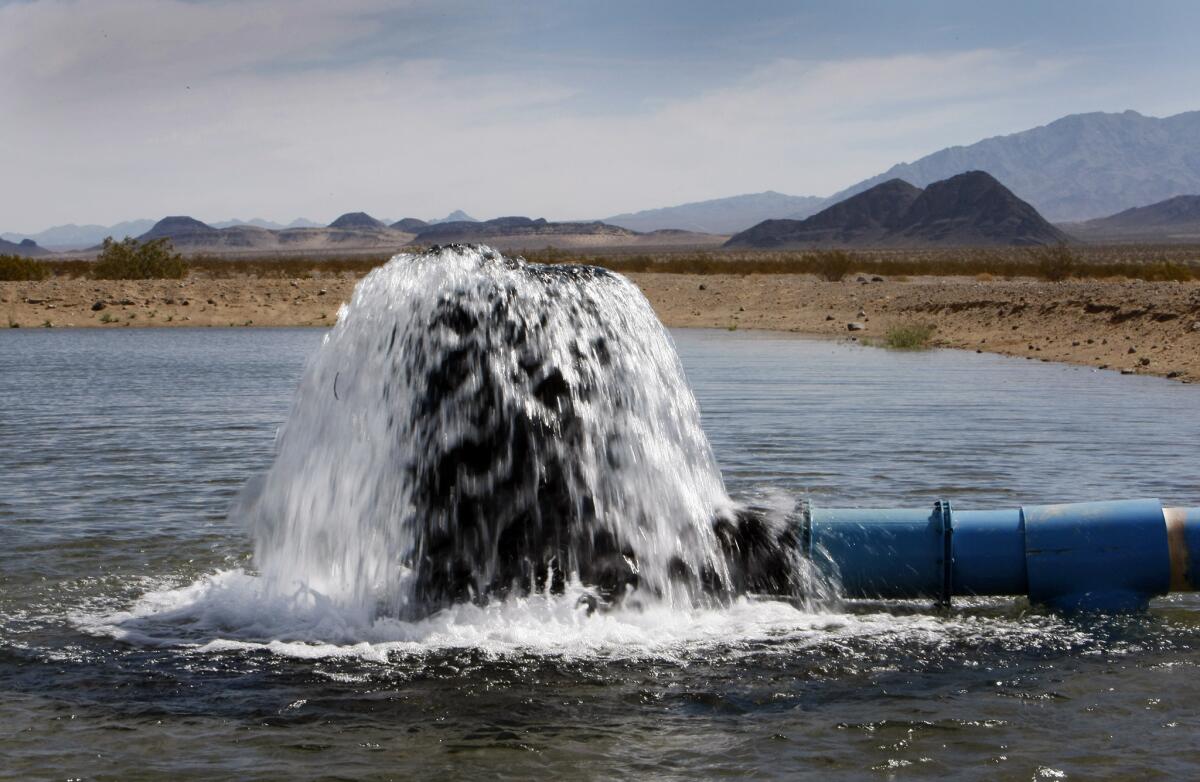Judge rejects environmental challenges to Mojave groundwater project

- Share via
In a one-page ruling, an Orange County Superior Court judge last week swept aside environmental challenges to Cadiz Inc.’s plans to pump groundwater from beneath the Mojave Desert and sell it to Southern California suburbs.
The May 1 decision by Judge Gail Andler cleared one set of obstacles to the controversial project. “We’re grateful for that result,” Cadiz Chief Executive Scott Slater said. “We’re going to keep our head down and keep going about things the right way.”
But opponents vowed to appeal the ruling, and Cadiz still has several other hoops to jump through.
Lawsuits filed by the Center for Biological Diversity, an environmental group, and Tetra Technologies Inc., a corporation that extracts an industrial salt from the desert aquifer, challenged the project’s environmental review, calling it inadequate.
They also contended that San Bernardino County should have led the review, rather than the Santa Margarita Water District, which has signed an agreement to buy water from Cadiz.
Andler expressed concern over the district’s lead role but concluded that it “did not rise to the level” of a violation of state environmental law.
Adam Keats, senior counsel with the biological center, said his organization will appeal the decision. “This is a long-haul game for us, and we’re not giving up that easily. This is one opinion.”
Conservation groups, Sen. Dianne Feinstein (D-Calif.) and federal scientists have expressed concern that the pumping operation could dry up springs used by wildlife in the nearby Mojave National Preserve.
Groundwater in Cadiz’s proposed well field also contains naturally occurring hexavalent chromium, a carcinogen, at levels of 14 parts per billion to 16 parts per billion, exceeding the state’s new drinking water standard of 10 parts per billion.
That is likely to complicate Cadiz’s plans to use the Colorado River Aqueduct to deliver its supplies to customers more than 100 miles to the west.
The Metropolitan Water District of Southern California, which owns the aqueduct and uses it to send river water to millions of Southland residents, has said in formal comments that the Cadiz supplies would have to be treated before they could be pumped into the aqueduct.
“We’re pretty close to the standard,” Slater said. “We just don’t think it’s a significant issue for us.”
Also unresolved is whether the project will have to undergo a lengthy federal review. Cadiz wants to build a pipeline from the well field along an existing railroad right-of-way that crosses federal land.
The project is a precedent-setting private venture that proposes to annually withdraw enough groundwater from beneath the parched Mojave to supply 100,000 homes. Water sales could bring Cadiz $1 billion to $2 billion in revenue over 50 years.
Environmental documents show that the pumping would, over the long term, lower the groundwater table and deplete the aquifer under Cadiz’s property as well as surrounding public lands.
Cadiz experts have dismissed concerns about the operation, saying it will have minimal environmental effects.







